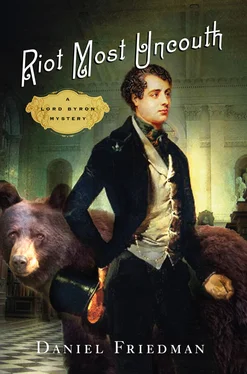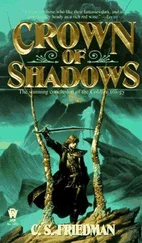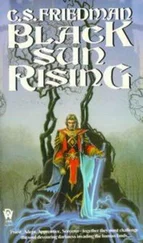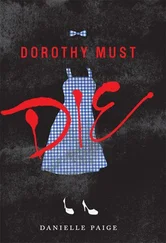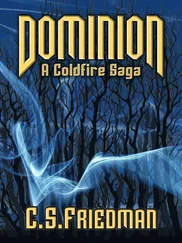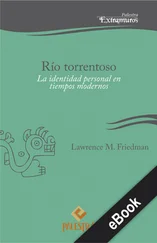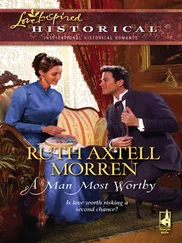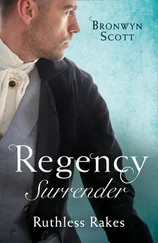Daniel Friedman - Riot Most Uncouth
Здесь есть возможность читать онлайн «Daniel Friedman - Riot Most Uncouth» весь текст электронной книги совершенно бесплатно (целиком полную версию без сокращений). В некоторых случаях можно слушать аудио, скачать через торрент в формате fb2 и присутствует краткое содержание. Год выпуска: 0101, ISBN: 0101, Издательство: St. Martin, Жанр: Исторический детектив, на английском языке. Описание произведения, (предисловие) а так же отзывы посетителей доступны на портале библиотеки ЛибКат.
- Название:Riot Most Uncouth
- Автор:
- Издательство:St. Martin
- Жанр:
- Год:0101
- ISBN:9781250027580
- Рейтинг книги:5 / 5. Голосов: 1
-
Избранное:Добавить в избранное
- Отзывы:
-
Ваша оценка:
- 100
- 1
- 2
- 3
- 4
- 5
Riot Most Uncouth: краткое содержание, описание и аннотация
Предлагаем к чтению аннотацию, описание, краткое содержание или предисловие (зависит от того, что написал сам автор книги «Riot Most Uncouth»). Если вы не нашли необходимую информацию о книге — напишите в комментариях, мы постараемся отыскать её.
Riot Most Uncouth — читать онлайн бесплатно полную книгу (весь текст) целиком
Ниже представлен текст книги, разбитый по страницам. Система сохранения места последней прочитанной страницы, позволяет с удобством читать онлайн бесплатно книгу «Riot Most Uncouth», без необходимости каждый раз заново искать на чём Вы остановились. Поставьте закладку, и сможете в любой момент перейти на страницу, на которой закончили чтение.
Интервал:
Закладка:
“Did you make my dining room table?” I asked, ignoring his question.
“I did. You came into my workshop yourself and bought it, when you first moved to Cambridge. You told me who you were and where to send it, and you said Mr. Hanson out of London would see to my payment, though the bill remained in arrears for quite some time.”
If he’d made my table, he’d certainly made the identical one at which the corpse of Jerome Tower had been seated. Angus had probably also carved the bedpost we’d found Violet’s corpse hanging from. This was, at the very least, a strange coincidence. Knifing had hinted that the table was significant, and he’d joked that he might arrest the constable. Maybe he knew something I didn’t.
Angus spent his nights patrolling the streets of Cambridge. He was obsessed, apparently, with his lovely daughter, of whom he spoke in the past tense. Maybe I was sitting in the dirt, drinking with a lunatic; a man driven to madness and violence by grief over some past loss. It did not seem far-fetched at all to me, after the bloody events of that evening, to think that Angus might have murdered Felicity.
He’d been the first to happen upon the corpses of Dingle and the carriage driver, and he’d figured out where to look for the coach. If he wasn’t the one who’d shot them, it was a stroke of excellent luck that he’d chosen this night to patrol this highway; there were several roads heading out of Cambridge in different directions. The buffoonish constable had, just by happenstance, wandered down the right road, and discovered the corpses of two murder victims, who some mysterious marksman had cut down with two impossible shots.
I feared the whisky he’d given me was poison, but he’d drunk from the flask himself, so that seemed unlikely. It could be that he intended to strangle or smother or beat me to death, and then claim he’d found me dead in the wreckage when Knifing arrived. Under normal circumstances, I could have fought him off, for though he was heavier than I, he was quite unfit. But I was hurt, and I didn’t know how much my wounds might impair me if I had to defend myself. I tried to rise, and found my limbs unsteady.
“Are you going somewhere?” Angus asked.
“I’m in quite a bit of pain,” I said, slumping back to the ground.
“Have this for it,” Angus said, and handed me the flask again. I hesitated for a moment, and then I drained the last of the warm backwash. It was thin and tasted metallic. I returned the empty vessel to its owner.
“Tell me about your daughter,” I said. It seemed best to keep him talking, since I was in no condition to fight or flee.
“Oh, Iris. Yes, quite pretty, she was. Caught a lot of lecherous glances from the undergraduates, and a few from the Fellows as well. I was worried for her. I protected her as best I could, but those men had seen a lot of the world, and that made them alluring to a young girl. There was one, though, a lad called Mr. Quincy Hawthorne, who was kind enough. He saw that Iris was from a family of decent people, and ceased his lewd advances. Acted real proper. Of course, like I said, the College men are all destined for better matches than town girls. Mr. Hawthorne was the younger child of Lord Teddington, which made him the next in line until his brother’s wife birthed a son. So he was obliged to marry a proper lady. But he had a friend in London he thought might be a smart match for my daughter, a fellow named Chester Marigold. Marigold was common folk, but his father was a merchant of some sort, who’d been in business with Teddington, and the children had played together from a young age. Young Mr. Hawthorne wrote Chester a letter and drew a picture of Iris. A real likeness; quite a talented young man, that Mr. Hawthorne was. Anyway, Chester wrote back from London, and shortly thereafter, I exchanged correspondence with his father. The Marigolds seemed to be nice people, and Chester was awfully keen on the drawing, so we began to make arrangements. My wife, Maisey, was so pleased. The Marigolds weren’t wellborn, you understand, but they’d made good. They moved in a better circle. The marriage would have been a step up for my daughter. A rosy future.”
“I’ve got an idea of where this is going,” I said.
“Yes, but just let me tell it,” said Angus.
“All right.”
“Maisey hired a carriage and set out for London. The driver was an older gent. He seemed amiable enough, but a bit infirm. He had one guard who rode along with him. Portly fellow, as I remember.”
“They never got there, did they?”
“I didn’t know nothing had gone wrong until eight days later, when I received a message from Mr. Marigold inquiring as to why they’d not arrived. I organized a search party and scouted the highway. We didn’t have nobody like Mr. Knifing helping us, but I was touched that Mr. Quincy Hawthorne and some of the other young men from the College volunteered. On the third day of looking, I made inquiries at a house twenty-odd miles out of town. The farmer there had spotted smoke rising from a disused tract of land. We looked around there, and found the wheel-tracks in the grass, leading off the road. The wreck of the carriage was hidden in the woods.”
He shook the flask, and then remembered it was empty.
“I should have known from the smell, but when I first saw them, I didn’t even realize I was looking at bodies,” Angus whispered. “The driver. The guard. My wife. She had lain there unburied four or five days, and this was in the peak of summer. Her face was unrecognizable because the whole corpse was covered in an undulating carpet of black.”
“Black?” I asked.
“Flies,” he said. There was a quaver in his voice. “And maggots in the flesh. I recognized her only by her wedding ring. It was so unimpressive, I guess her killers didn’t bother to chop off her finger to get at it.”
“My God.”
“Deeper in the woods, we found Iris. Because of the decomposition, we couldn’t know for sure, but old Mr. Bartholomew, the undertaker, said there were ligatures and wounds that suggested they’d done things, that they’d-” Here, he broke down into sobs.
“I’m sorry, Angus,” I said. “I had no idea.”
“I’d have killed myself, I think, if it weren’t for Crystal, my younger one. In a few more years, she’ll be married, I suppose, and I’ll have nothing left to live for.”
“Oh, don’t say that,” I said. I leaned forward and patted him on the knee. “You’ll still have whisky.”
“I hope it don’t offend you to hear me say it, but you and I aren’t so different,” Angus said.
“How do you mean?” I asked.
“I didn’t fully realize it until Mr. Knifing found Mrs. Tower’s diary, but I reckon I knew all along why you couldn’t stay away from the murder scene. It’s the same reason I volunteered to be constable. The same reason I patrol these lonesome highways with my musket. You’re looking for revenge.”
“I’m looking for answers.”
“Call it what you will.”
I thought about that for a minute. Then I asked: “What’s your surname, Angus the Constable?”
“Buford. I’m Angus Buford.”
I smiled. “Well, I’m pleased to know you, Angus Buford.”
“Likewise, I suppose, Lord Byron.”
Chapter 34
For me, degenerate modern wretch,
Though in the genial month of May,
My dripping limbs I faintly stretch,
And think I’ve done a feat to-day.
But since he cross’d the rapid tide,
According to the doubtful story,
To woo,-and-Lord knows what beside,
And swam for Love, as I for Glory
- Lord Byron, “Written After Swimming from Sestos to Abydos”There’s a great old legend about a boy from Abydos named Leander who fell in love with a priestess of Aphrodite named Hero. Hero dwelt in a tower in Sestos, and between Sestos and Abydos lay the Hellespont.
Читать дальшеИнтервал:
Закладка:
Похожие книги на «Riot Most Uncouth»
Представляем Вашему вниманию похожие книги на «Riot Most Uncouth» списком для выбора. Мы отобрали схожую по названию и смыслу литературу в надежде предоставить читателям больше вариантов отыскать новые, интересные, ещё непрочитанные произведения.
Обсуждение, отзывы о книге «Riot Most Uncouth» и просто собственные мнения читателей. Оставьте ваши комментарии, напишите, что Вы думаете о произведении, его смысле или главных героях. Укажите что конкретно понравилось, а что нет, и почему Вы так считаете.
